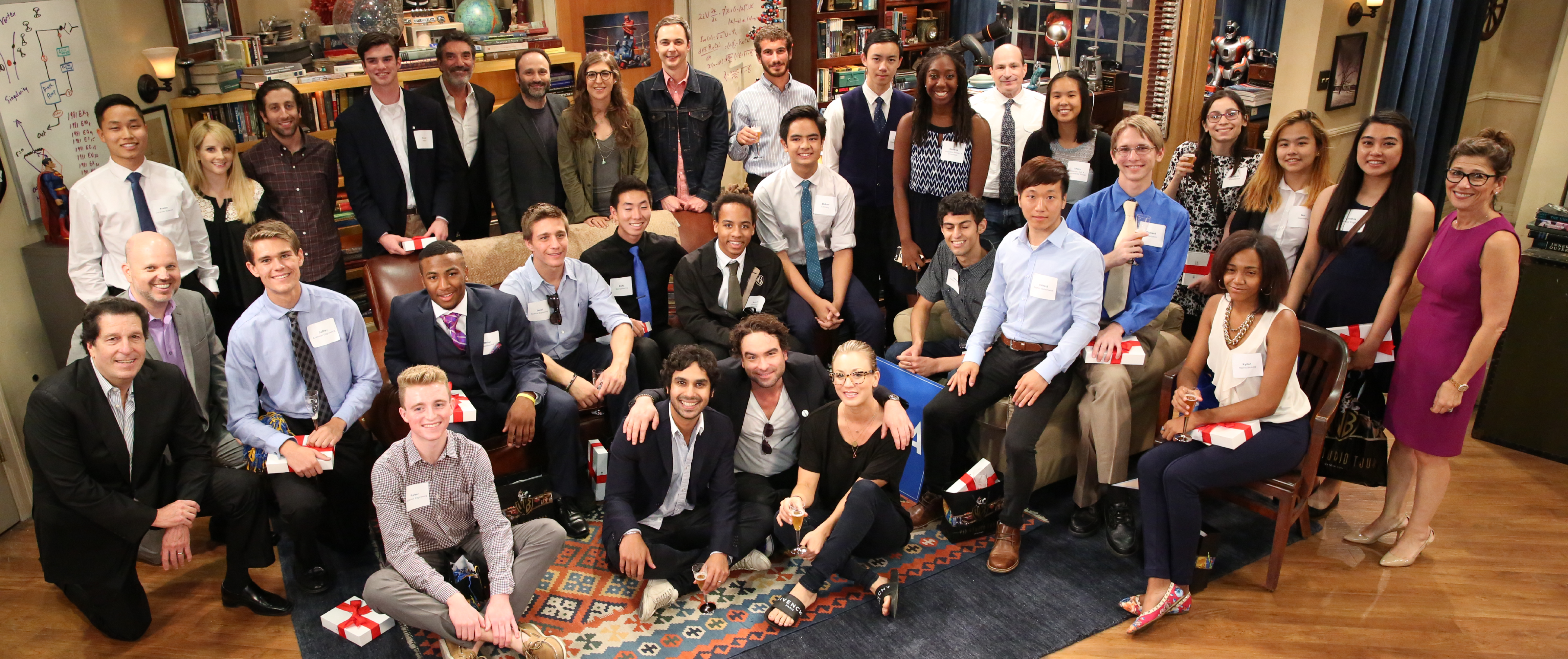July
New Student Orientation for the incoming cohort of TBBT Scholars, followed by a welcome dinner for the Scholars and their families.
September
Tour of the California NanoSystems Institute and Lorre Scholars Lounge as part of the Summer Bridge Program for the incoming cohort of TBBT Scholars.
Fall Quarter Zero Week
UCLA Recreation Challenge Course team-building activity to foster connections among the cohort, followed by a picnic lunch.
September/October
Welcome and orientation session with Mr. Chuck Lorre in the California NanoSystems Institute for the new Freshman cohort
October
Visit Warner Bros. Studios to attend a taping of one of Mr. Chuck Lorre’s television series.
Monthly
TBBT Scholars will engage in peer mentoring and volunteering to enrich their learning experience through meaningful, hands-on community service. A variety of opportunities will be available through the Center for Community Engagement and the UCLA Volunteer Center.
March
TBBT Scholars participate in field trips to various STEM-related sites. In the past, these have included the California Science Center, the La Brea Tar Pits, and the Jet Propulsion Laboratory.
Quarterly
In partnership with UCLA Resilience In Your Student Experience (RISE) Center, TBBT Scholars will be provided mindfulness tools, workshops, and resources that support resilience, connection, and overall well-being.
March
TBBT Scholars are encouraged to invite their peers to visit their research labs to learn about different projects, lab cultures, and scientific techniques.
May
TBBT Scholars present their research projects at UCLA’s annual Undergraduate Research Week, a week-long celebration of undergraduate research and creative inquiry at UCLA. Students from all disciplines gather to share their innovative and impactful work with the UCLA community.
May/June
End-of-Year graduation celebration recognizing graduating TBBT Scholars. The event includes awards and features participation by Mr. Chuck Lorre and his team, held at the California NanoSystems Institute.



